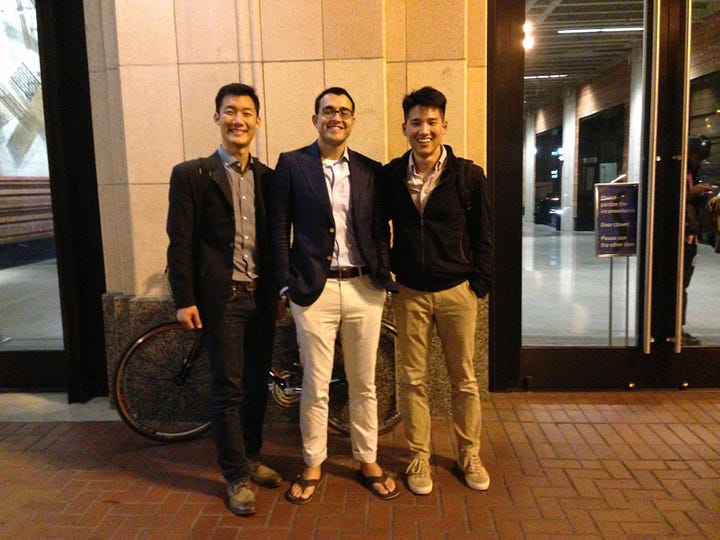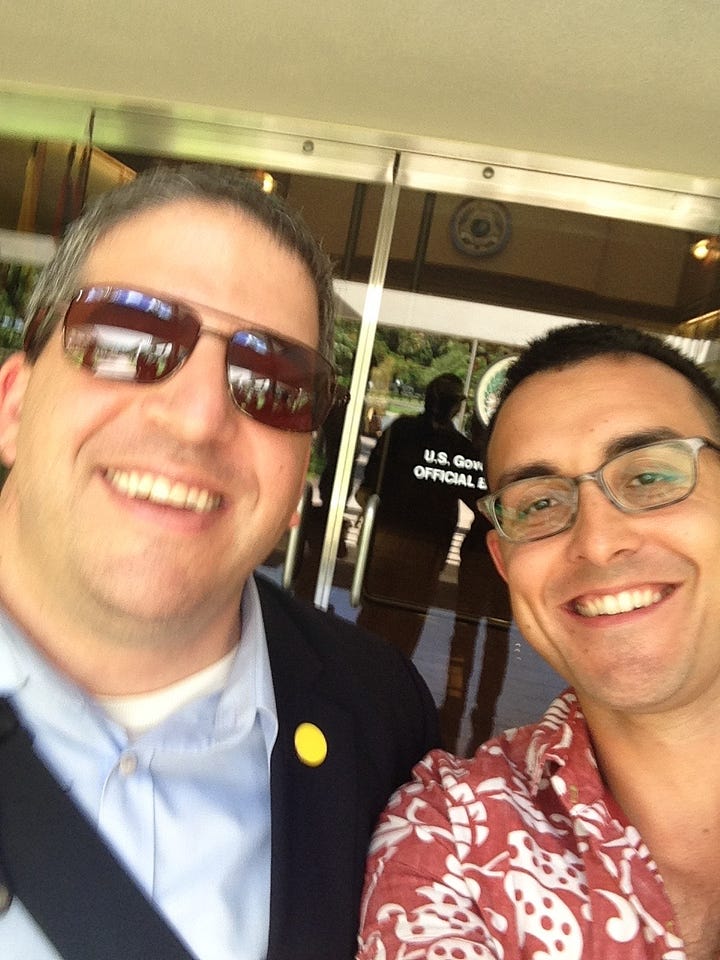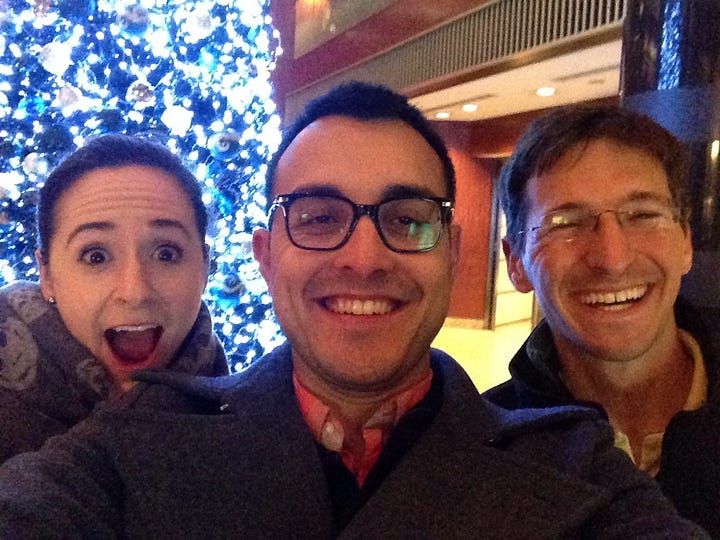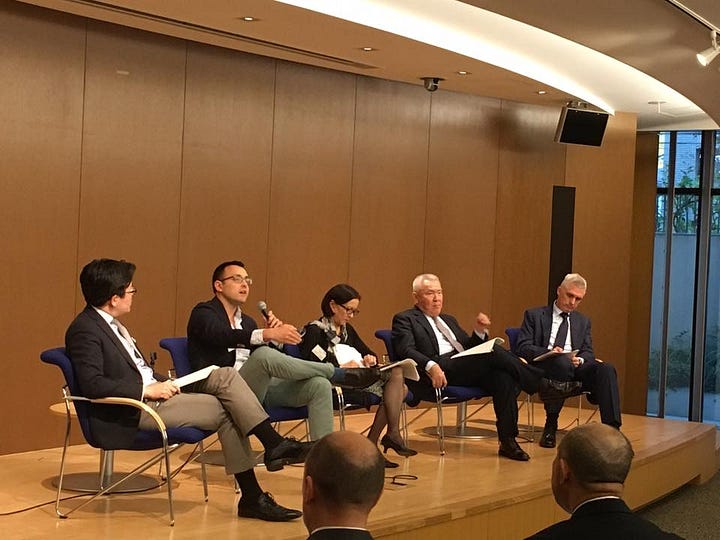Friendship and National-Security Ideology: A Living Experiment
In the world of liberal primacy, you can’t be an insider and keep it 100




Matthew Sitman and Sam Adler-Bell host the Know Your Enemy podcast—a show that dissects reactionary political ideology with a bit of critique and, at times, perhaps too much sympathy (it’s a leftist show but focuses entirely on understanding the right).
They had a good episode last year reflecting on the whole “Nate Hochman-gate.”
If you weren’t tracking, a very young, high-profile, right-wing intellectual named Nate Hochman came on their show in 2021. Shortly thereafter, DeSantis’s presidential campaign hired him, but then quickly fired him for using and promoting a Nazi symbol in a campaign ad (the ads also included images of Patrick Bateman, the serial killer in American Psycho, but it would derail this whole thing to explain that).
Matt and Sam got harassed on social media for having Hochman on their show, so they did an episode that reflected on whether it was a mistake, and how we navigate the line between friendship and politics. It offered nothing conclusive (it’s a podcast, not therapy), but they’re grappling with something that many of us are: What do we owe our friends in highly partisan times, and when should those bonds prevail over politics?
This is a very personal question for me because, while I haven’t talked about it a lot, I’ve been a living experiment in this question for the past 5-6 years.
Maybe this will seem gossipy, or maybe it’s a mini-ethnography of the national security state. I don’t know. But I think everyone would benefit from understanding the social realities of the DC foreign policy machine at a level deeper than “the Blob”—a moniker that Washingtonians have duly earned but that is also cruder than the reality.
My alienation from the elite in-group I come from is not total—some ties remain and some collaborations endure. But alienation is more norm than exception, and given both what they do and what I believe, it seems like it could hardly be any other way.
Most of what seemed like close friendships have proven to be ideologically contingent. At the same time, the more critical and self-reflective crew I now associate with is proving to be a strong basis for new friendships.
Here goes…

